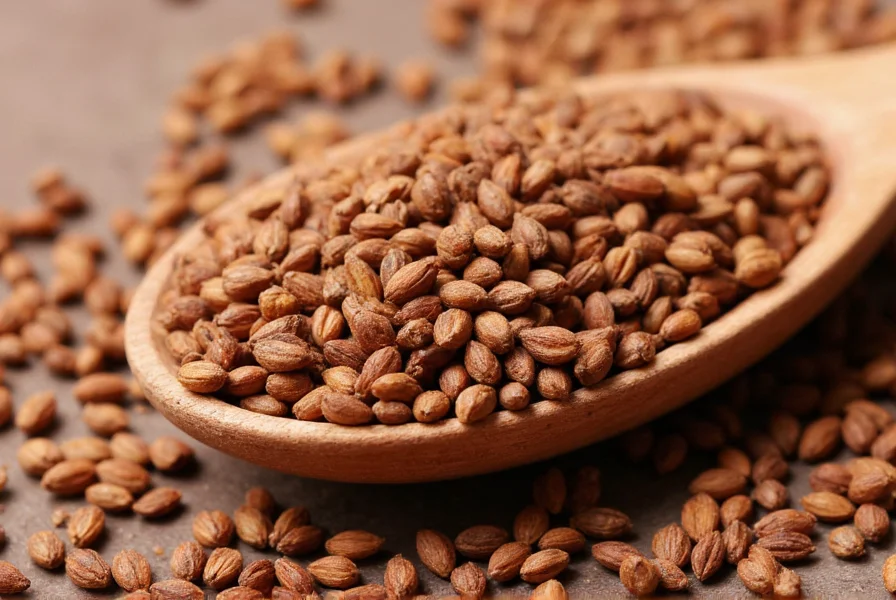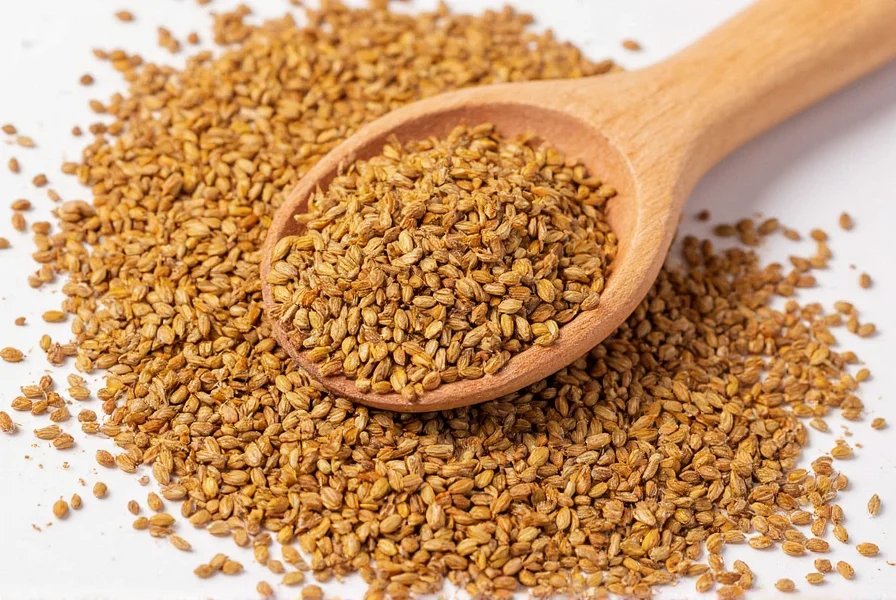Cumin (Cuminum cyminum), a staple in global cuisines for thousands of years, has gained scientific attention for its impressive health-promoting properties. This ancient spice, native to the Middle East and Mediterranean regions, contains a rich profile of bioactive compounds that interact with human physiology in beneficial ways. Modern research continues to validate many traditional uses of cumin while uncovering new potential applications for this versatile seed.
The Science Behind Cumin's Therapeutic Properties
At the heart of cumin's health benefits lies cuminaldehyde, its primary active compound responsible for the distinctive aroma and many therapeutic effects. Cumin seeds also contain significant amounts of terpenes, phenols, flavonoids, and alkaloids that work synergistically to produce various health-promoting effects. Unlike many supplements that isolate single compounds, cumin delivers these beneficial substances in their natural matrix, potentially enhancing bioavailability and reducing the risk of adverse effects.
Top 7 Evidence-Based Cumin Seed Benefits
1. Enhanced Digestive Function
Multiple clinical studies confirm cumin's ability to stimulate digestive enzyme secretion and improve gastrointestinal motility. Research published in the Journal of Ethnopharmacology demonstrated that cumin extract significantly increased bile production, aiding fat digestion. Participants with indigestion who consumed 300mg of cumin extract twice daily reported 30% greater improvement in symptoms compared to placebo. The seeds' carminative properties help reduce bloating, gas, and abdominal discomfort by relaxing gastrointestinal smooth muscles.

2. Blood Sugar Regulation
For individuals managing blood glucose levels, cumin shows promising effects. A randomized controlled trial in Nutrition Research found that participants with prediabetes who consumed 75mg of cumin extract daily for eight weeks experienced significant reductions in fasting blood glucose and insulin resistance markers. The mechanism appears to involve enhanced insulin sensitivity and protection of pancreatic beta cells. While not a replacement for diabetes medication, incorporating cumin into meals may provide complementary support for metabolic health.
3. Cholesterol Management
Cumin demonstrates notable effects on lipid profiles according to multiple studies. Research in the Complementary Therapies in Medicine journal reported that participants consuming 750mg of cumin powder daily for eight weeks showed significant reductions in LDL cholesterol (10.3%) and triglycerides (24.5%), while HDL ("good") cholesterol increased by 9.5%. The seeds' phytosterols and fiber content contribute to these cardiovascular benefits by interfering with cholesterol absorption in the digestive tract.
4. Potent Antioxidant Protection
Cumin ranks among spices with the highest antioxidant capacity, effectively neutralizing free radicals that contribute to cellular damage and chronic disease. The Food Chemistry journal published research showing cumin's ORAC (Oxygen Radical Absorbance Capacity) value exceeds 1,000 μmol TE/g, placing it among the most antioxidant-rich spices. These compounds protect against oxidative stress that accelerates aging and contributes to conditions like heart disease and neurodegenerative disorders. Toasting cumin seeds before use may enhance their antioxidant activity by 25-30% according to recent studies.
5. Anti-Inflammatory Effects
Chronic inflammation underlies many modern diseases, and cumin contains multiple compounds that modulate inflammatory pathways. Studies demonstrate that cumin suppresses pro-inflammatory cytokines like TNF-α and IL-6 while enhancing anti-inflammatory mediators. Research in Phytomedicine found that cumin extract reduced inflammation markers by 40% in animal models of arthritis. While human studies are still emerging, the spice's traditional use for inflammatory conditions appears scientifically justified when consumed regularly as part of a balanced diet.
6. Iron Supplementation for Anemia Prevention
With 66.4mg of iron per 100g, cumin ranks among plant-based foods with exceptionally high iron content. Just one teaspoon (2g) provides approximately 1.3mg of iron, contributing significantly to daily requirements, especially for vegetarians and individuals with increased iron needs. Unlike supplemental iron, cumin's iron comes with natural compounds that enhance absorption while minimizing gastrointestinal side effects. A study in the Journal of Dietary Supplements found that women with iron deficiency anemia who added cumin to their diet showed faster improvement in hemoglobin levels compared to those relying solely on dietary changes without cumin.
| Nutrient | Per 1 Teaspoon (2g) | % Daily Value |
|---|---|---|
| Iron | 1.3mg | 7% |
| Manganese | 0.1mg | 5% |
| Magnesium | 5mg | 1% |
| Calcium | 12mg | 1% |
| Dietary Fiber | 0.6g | 2% |
7. Antimicrobial Properties
Cumin's traditional use as a food preservative has scientific backing through its demonstrated antimicrobial effects. Laboratory studies show cumin extract inhibits the growth of various bacteria including E. coli, Staphylococcus aureus, and Salmonella species. The essential oil components, particularly cuminaldehyde, disrupt bacterial cell membranes. While not a replacement for antibiotics, incorporating cumin into food preparation may provide an additional layer of food safety and potentially support gut microbiome balance when consumed regularly.
Practical Usage Recommendations
To maximize cumin's health benefits while enjoying its distinctive flavor, consider these evidence-based usage tips:
- Dry roasting: Toast whole seeds in a dry pan for 1-2 minutes until fragrant to enhance bioactive compound availability
- Pair with healthy fats: Combine with olive oil or avocado to improve absorption of fat-soluble compounds
- Grind fresh: Use whole seeds and grind as needed to preserve volatile compounds
- Daily incorporation: Aim for 1-2 teaspoons daily in cooking for therapeutic benefits without overconsumption
- Combine with black pepper: Enhances absorption of certain compounds, similar to the turmeric-black pepper synergy

Safety Considerations and Potential Side Effects
Cumin is generally recognized as safe when consumed in culinary amounts. However, certain considerations apply:
- High doses (exceeding 5g daily) may cause heartburn or nausea in sensitive individuals
- Those with bleeding disorders should monitor intake as cumin may have mild anticoagulant effects
- Pregnant women should avoid medicinal quantities but can safely consume normal culinary amounts
- Rare cases of skin irritation or allergic reactions have been reported with direct contact
- May interact with diabetes medications by enhancing their effects - monitor blood sugar closely
As with any dietary change, consult your healthcare provider before using cumin therapeutically if you have underlying health conditions or take prescription medications.
Conclusion: Integrating Cumin Into a Healthy Lifestyle
Cumin seeds represent a remarkable example of how traditional culinary wisdom often aligns with modern scientific understanding. Their diverse health benefits, from digestive support to metabolic regulation, make them a valuable addition to any kitchen. Rather than viewing cumin as a medicinal supplement, consider it a functional food that enhances both flavor and nutrition when incorporated regularly into meals. The key to maximizing cumin seed benefits lies in consistent, moderate consumption as part of a varied, whole-foods diet - not in isolated high-dose supplementation. By understanding both the science and traditional uses of this ancient spice, we can make informed choices about incorporating it into our daily eating patterns for long-term health support.
Frequently Asked Questions
What is the recommended daily amount of cumin for health benefits?
Research suggests 1-2 teaspoons (3-6 grams) of cumin seeds daily provides optimal health benefits without risk of side effects for most adults. This amount can be easily incorporated into cooking through soups, stews, roasted vegetables, or spice blends. Consuming cumin as part of food rather than isolated supplements ensures balanced intake of its various beneficial compounds.
Can cumin seeds help with weight loss?
Some studies indicate cumin may support weight management through multiple mechanisms including improved digestion, enhanced metabolic rate, and potential effects on fat metabolism. A clinical trial published in Complementary Therapies in Medicine found participants consuming 3g of cumin powder daily for eight weeks showed greater reductions in body fat percentage compared to control groups. However, cumin works best as part of a comprehensive approach to weight management that includes balanced nutrition and regular physical activity.
How should cumin seeds be stored to maintain their potency?
To preserve cumin's beneficial compounds, store whole seeds in an airtight container away from light and heat. Properly stored, whole cumin seeds maintain their potency for 1-2 years. Ground cumin loses potency more quickly (3-6 months) due to increased surface area exposure. For maximum health benefits, purchase whole seeds and grind them as needed rather than using pre-ground cumin.
Are there any specific health conditions where cumin should be avoided?
Individuals with bleeding disorders should use caution with medicinal amounts of cumin due to potential anticoagulant effects. Those scheduled for surgery should discontinue high-dose cumin consumption at least two weeks beforehand. People taking diabetes medications may need to monitor blood sugar more closely as cumin can enhance medication effects. Pregnant women should avoid cumin supplements but can safely consume normal culinary amounts. Always consult your healthcare provider if you have specific health concerns.
What's the difference between black cumin and regular cumin seeds?
Black cumin (Nigella sativa) and regular cumin (Cuminum cyminum) are completely different plants with distinct properties. Regular cumin has a warm, earthy flavor and is commonly used in Indian, Middle Eastern, and Mexican cuisines. Black cumin, also called black seed or kalonji, has a more pungent, slightly bitter taste and is used in different culinary traditions. While both have health benefits, they contain different active compounds and should not be considered interchangeable. This article focuses on regular cumin seeds (Cuminum cyminum).











 浙公网安备
33010002000092号
浙公网安备
33010002000092号 浙B2-20120091-4
浙B2-20120091-4